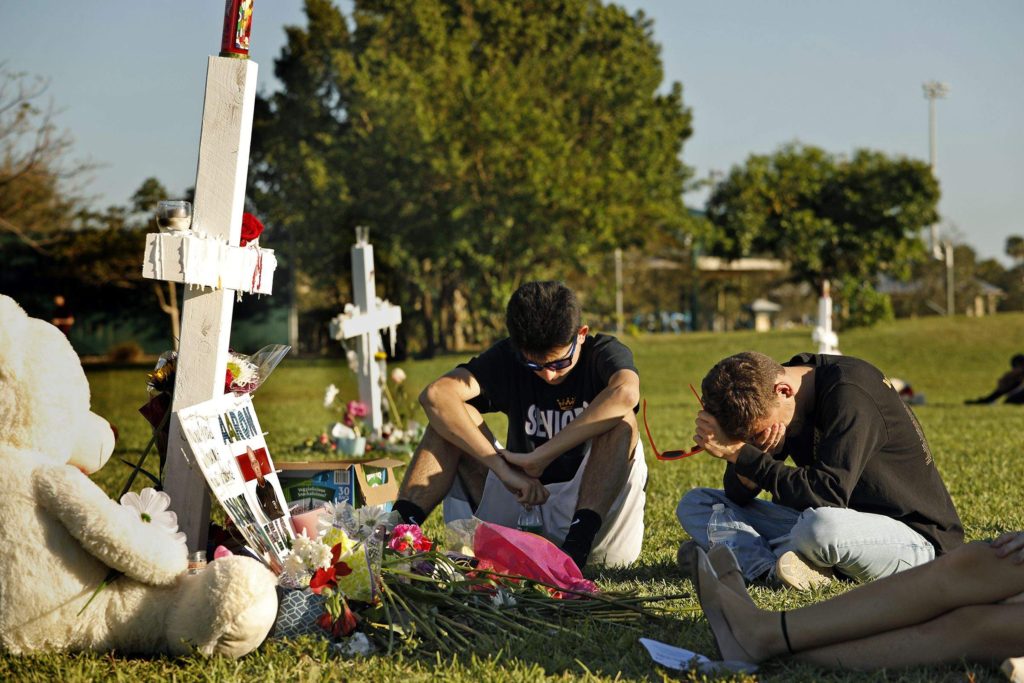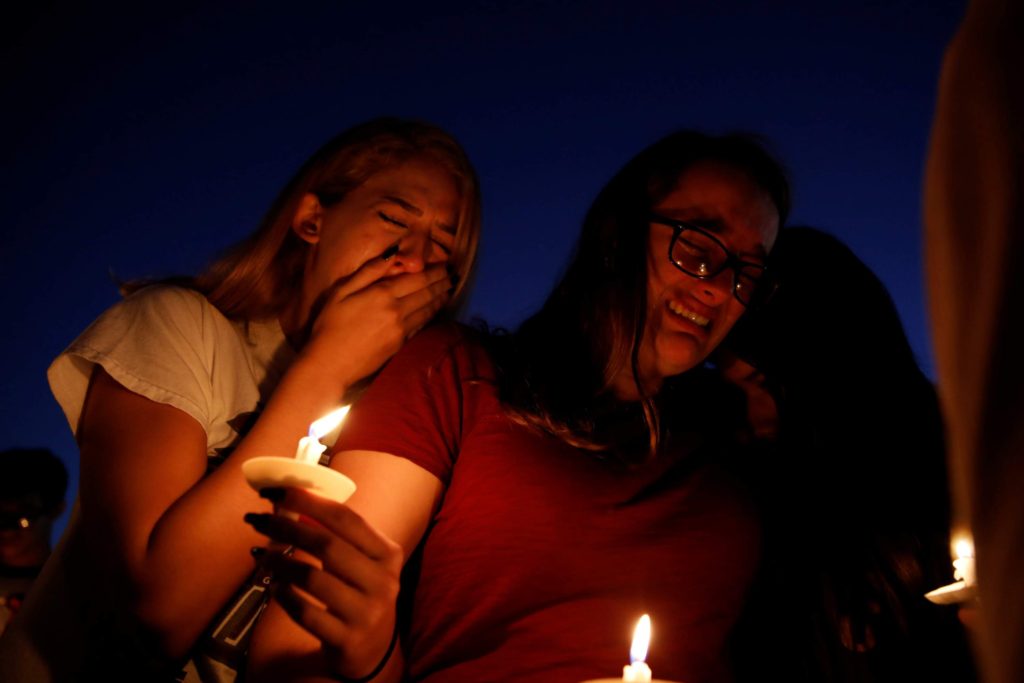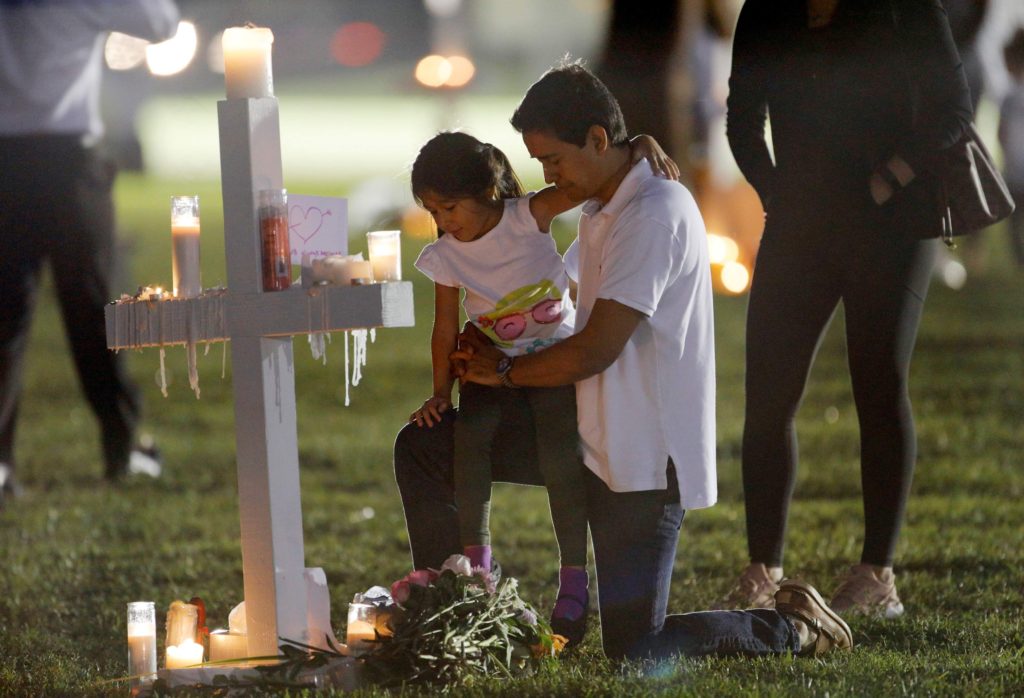Pro-gun legislation in the Iowa Statehouse has succumbed to a barrage of bullets. Unfortunately, this is not a metaphor.
The nation’s latest mass shooting, this time at a Florida high school, contributed to the demise of an Iowa bill aimed to loosen gun-permitting regulations. Instead, lawmakers want school districts to adopt security plans that address “active shooters” and other disasters.
Sen. Jason Schultz, R-Schleswig, who managed Senate File 2106, said the untimely and unnecessary deaths of 17 Floridians “apparently changed the optics.”
Well, it’s about damn time.

“I’m disappointed,” said Sen. Brad Zaun, R-Urbandale, who made the decision to pull back the bill. “It makes me sick what happened down in Florida, but with that said, I did have the votes to move this thing forward.”
The bill effectively ended weapons permits in Iowa, opting instead to have the state governed by federal weapons requirements.
The “optics” so heavily lamented by Iowa bill supporters is that the bill followed existing Florida gun laws, which are considered some of the weakest in the nation. Florida residents don’t need a permit or a license to purchase a gun, and there is no need to register guns either. No permit is required to concealed-carry a long firearm, although one is required for handguns. There is no limitation on how many firearms an individual can purchase at one time, and there is no state license required to sell firearms. There also are no regulations of assault-style weapons in Florida, and the state requires no three-day waiting period.
Limited Florida concealed-carry permits are run through the state’s Department of Agriculture and Consumer Services, which has little discretionary power to deny a permit.
Florida, like Iowa, also has “stand your ground” — further loosened after the 2016 mass shooting at the Pulse nightclub in Orlando cost the lives of 49 people. Florida law now requires prosecutors to produce “clear and convincing evidence” that a shooter was not motivated by self-preservation, instead of requiring the shooter to prove it was an act of self-defense.
In 2016 the state was given an “F” by the Giffords Law Center, a gun-control advocacy group that tracks firearm legislation. Iowa, on the other hand, earned a “C” score, although the ranking was completed too early to include the Legislature’s most recent changes.
The Iowa switch from discussion of weapon permits to school plan mandates leaves no question that our current crop of lawmakers believes such mass shootings are inevitable. Thoughts and prayers, y’all.

But what Iowans and all Americans need to understand is that having a plan in place at the local school does nothing to protect people at a music concert, nightclub, house of worship, movie theater, workplace, office party, college campus or restaurant. We don’t need plans born of political posturing; we need lawmakers with political courage.
“So we have had this experience,” Australian Foreign Minister Julie Bishop said during a television appearance following the mass shooting in Las Vegas. “We acted with a legislative response, and it will be up to U.S. lawmakers and legislators to deal with this issue.”
In April 1996, a man killed 35 people with a semi-automatic weapon at a tourist destination in Tasmania, Australia. Almost immediately the country and its states began enacting regulations. The end result, as documented in a 2016 study published in the Journal of the American Medical Association, is that Australia hasn’t experienced a mass shooting since 1996 — even though in the 18 years prior the country was witness to 13.
In the wake of regulations, total firearms deaths in Australia also plummeted.
Could the changes made in Australia, if adopted in the U.S., create similar results? It’s a question that deserves exploration, but we need courageous lawmakers who don’t rely on “optics” to lead the way. And, unlike ammunition and firearms, such politicians remain in short supply.
Instead, U.S. lawmakers have restricted funding for research through the Centers for Disease Control and Prevention on gun violence and prohibited reporting of deaths that involve police.
So, this is where we are.

Seventeen more lives have been ended in a matter of moments, the result of a despicable act by a despicable person legally allowed to obtain a tool capable of such carnage.
Iowa lawmakers are lamenting the optics while pushing mandates that may address a symptom but not a cure.
Members of Congress are expressing their shock and sending their prayers while quietly cashing campaign donations.
When and where it will happen next is anyone’s guess. The only thing we know for sure is that it will.
This column by Lynda Waddington originally published in The Gazette on Feb. 18, 2018. Photo credit: Carlos Garcia Rawlins/Reuters, Jonathan Drake/Reuters, Carolyn Cole/LA Times/TNS
